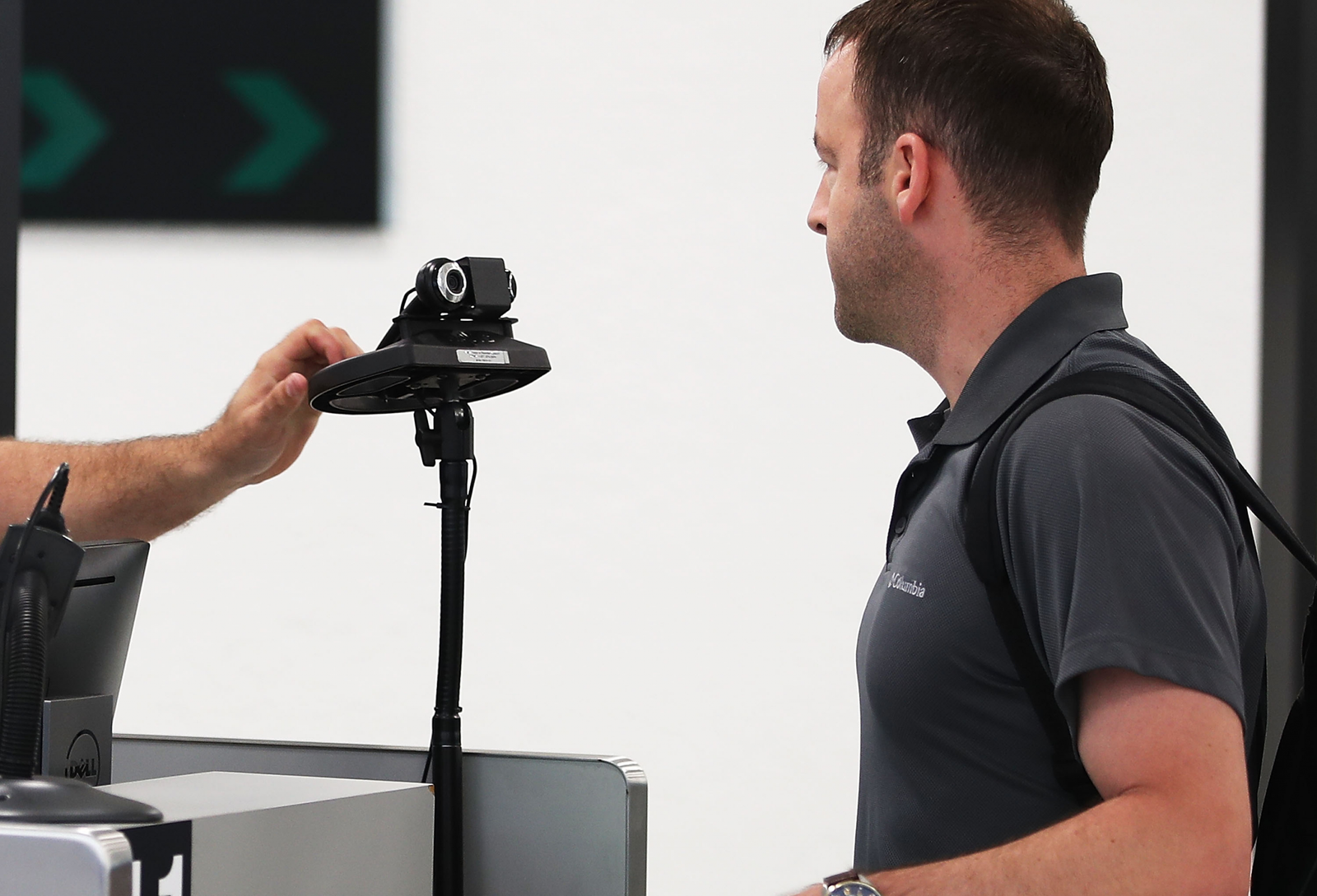Clearview AI on track to win U.S. patent for facial recognition technology – POLITICO
Technology
The government is moving to award a lucrative patent for a “search engine for faces,” a technology that has members of Congress and privacy advocates up in arms.
Civil rights groups argue that facial recognition technology is error-prone, misidentifying women and minorities at higher rates than it does white men and sometimes leading to false arrests. | Joe Raedle/Getty Images
By ALEXANDRA S. LEVINE
12/04/2021 09:00 AM EST
Link Copied
Clearview AI has gotten the green light on a federal patent for its facial recognition technology — an award that the company says is the first to cover a so-called “search engine for faces” that crawls the internet to find matches.
Clearview’s software — which scrapes public images from social media to help law enforcement match images in government databases or surveillance footage — has long faced fire from privacy advocates who say it uses people’s faces without their knowledge or consent.
Civil rights groups also argue that facial recognition technology is generally error-prone, misidentifying women and minorities at higher rates than it does white men and sometimes leading to false arrests. (A recent audit of Clearview’s tech by the Commerce Department’s National Institute of Standards and Technology found its results to be highly accurate, and the company said it knows of no instances to date where the technology has led to a wrongful arrest.)
Now, some of those critics fear that codifying Clearview’s work with a patent will accelerate the growth of these technologies before legislators or regulators have fully addressed the potential dangers.
“Facial recognition technology is metastasizing throughout the federal government, and I am deeply concerned about this trend towards increased surveillance,” privacy hawk Sen. Ed Markey (D-Mass.) said in an email. Markey has led legislation to put a moratorium on government use of biometric software made by Clearview and others, but momentum on the issue seen during the last Congress has waned and federal guardrails for the technology are far off.
The U.S. Patent and Trademark Office sent Clearview a “notice of allowance” on Wednesday, meaning the patent will be approved once the company pays certain administrative fees. The patent covers Clearview’s “methods of providing information about a person based on facial recognition,” including its “automated web crawler” that scans social networking sites and the internet and its algorithms that analyze and match facial images obtained online.
“There are other facial recognition patents out there — that are methods of doing it — but this is the first one around the use of large-scale internet data,” Clearview CEO and co-founder Hoan Ton-That told POLITICO in an exclusive interview. The product uses a database of more than 10 billion photos, Ton-That said, and he has emphasized that “as a person of mixed race, having non-biased technology is important to me.”
The company’s technology is widely used by top law enforcement bodies in the U.S., including the FBI and Department of Homeland Security, and at least 10 federal agencies have said they plan to expand their use of facial recognition in the next two years.
Clearview’s critics argue that the imprimatur of a patent could speed the uptake of a technology that is dangerously intrusive.
“The part that they’re looking to protect is exactly the part that’s the most problematic,” said Matt Mahmoudi, an Amnesty International researcher who is leading the group’s work to ban facial recognition. He argued that Clearview’s use of an image database built without people’s knowledge or consent is a de-facto violation of their right to privacy. “They are patenting the very part of it that’s in violation of international human rights law.”
Australia and the U.K. have accused Clearview of breaking their privacy and data protection laws.
The tool has also angered the major social media companies. Twitter, Google, YouTube, LinkedIn and Venmo last year sent cease-and-desist letters demanding that Clearview stop scraping user photos and data from their platforms. Facebook, which recently announced that it would shut down its own facial recognition system, has asked Clearview to do the same.
Clearview argues that there is a First Amendment right to make use of public material. “All information in our datasets are all publicly available info that people voluntarily posted online — it’s not anything on your private camera roll,” Ton-That said. “If it was all private data, that would be a completely different story.”
Jules Polonetsky, CEO of the Future of Privacy Forum, said Clearview’s patent raises alarm about the prospect of “running real time recognition tied to data checks on someone you just met, dates, drug users, or homeless people.”
The market for commercial uses of this technology is growing, as is the volume of facial recognition-related patents the USPTO has issued. It granted about 5,000 between 2015 and 2019 to businesses across tech, telecom, entertainment, retail and other sectors, according to the Government Accountability Office. USPTO did not immediately respond to a request for comment on whether other facial recognition patents had been issued for web-crawling features like Clearview’s.
Ton-That said Clearview serves government users only and that “we don’t intend to ever make a consumer version of Clearview AI.”
Yet Clearview says in its patent application that the invention could be useful for other purposes. The company argues that “it may be desirable for an individual to know more about a person that they meet, such as through business, dating, or other relationship.” Common ways of learning about new people, like asking them questions or checking out their business cards, may be unreliable because the information they choose to share could be false, the application says.
Mahmoudi of Amnesty International said that language in the patent leaves the door open to a cascade of new uses in the future.
“It shows a willingness to go down a slippery slope of basically being available in any context,” he said.
Link Copied
© 2021 POLITICO LLC




